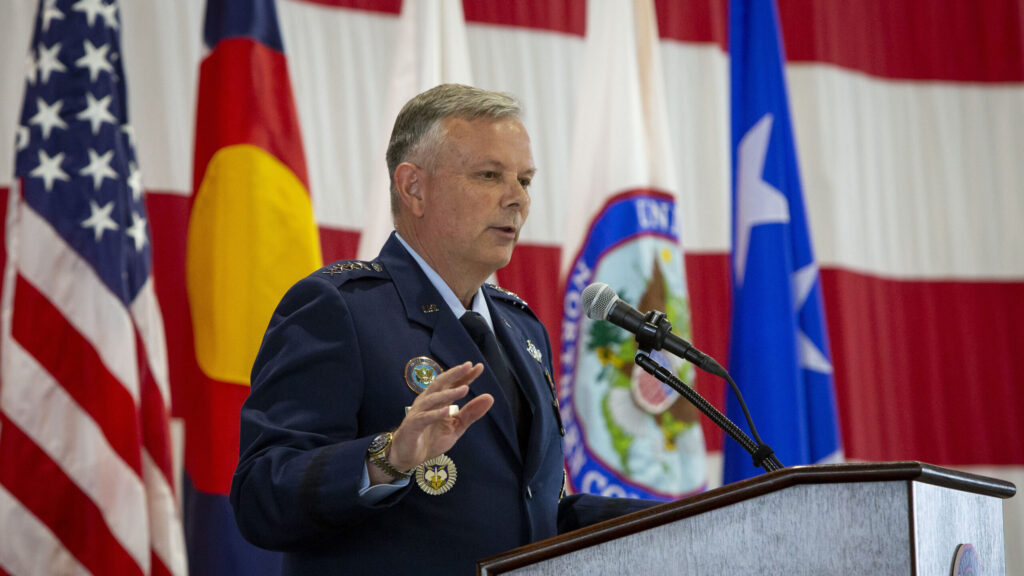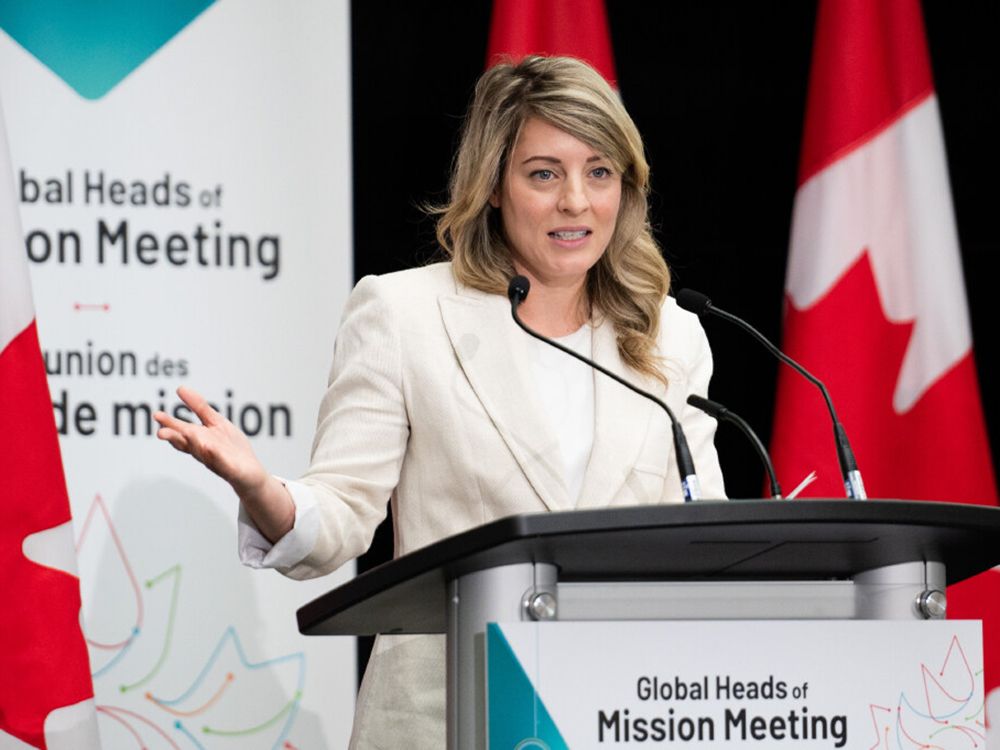Global Affairs moves arctic centre from Norway to Ottawa after promising to increase foreign presence
Two weeks after Foreign Affairs Minister Mélanie Joly promised to increase Canada’s presence abroad, she's shutting down an arctic centre
Author of the article:
Christopher Nardi
Published Jun 27, 2023 • Last updated 1 minute ago • 3 minute read
5 Comments
Minister of Foreign Affairs Melanie Joly delivers remarks at the Global Heads of Mission Meeting discussing the Future of Diplomacy Initiative in Ottawa, on Wednesday, June 7, 2023. PHOTO BY SPENCER COLBY /THE CANADIAN PRESS
OTTAWA – Two weeks after Foreign Affairs Minister Mélanie Joly promised to increase Canada’s presence abroad, her department is shutting down an Arctic centre in Norway and relocating it to Ottawa.
Global Affairs Canada spokesperson Charlotte MacLeod confirmed that the department was closing its Canadian International Arctic Centre (CIAC) office in Oslo, Norway, and repatriating its chief to Canada by the early fall
A handful of local staff hired to work at the CIAC in Oslo were also either let go or told their contracts would not be renewed.
In a statement, MacLeod argued the move back to Ottawa would “allow the team to better cooperate with other government departments and agencies, enhance our capacity to deliver on the department’s international Arctic mandate, and strengthen implementation of the International Chapter of the Arctic and Northern Policy Framework.”
But the decision appears in stark contrast to promises by Joly as well as the findings of Future of Diplomacy, the major overhaul of the department published in early June.
“This decision truly makes no sense,” former Canadian ambassador to Norway Artur Wilczynski said in an interview. “It runs so counter the process announced by the minister not to focus people in Ottawa.”
“This was an excellent opportunity for the minister to put words to action and use the CIAC as a model.”
GAC’s review notably found that Canada’s presence, and thus influence, abroad has diminished over the years. The country spends considerably less on foreign affairs, trade and international assistance per capita than many of its allies, and it has diplomatic presence in fewer countries than all its G7 counterparts.
“Canada’s overall presence and ability to exert influence abroad has not kept pace with evolving global realities,” the report found.
“While advances in technology offer new possibilities for virtual and hybrid global engagement, strengthened presence on the ground is required to report, advocate and represent Canada’s strategic interests where it matters most.”
The report also argued GAC should ensure the “adequacy of resources dedicated to the work of the Arctic Council.”
Supporting Canada’s work at the Arctic Council is a key part of what the CIAC does.
GAC’s website explains that the centre is one of the two divisions that carries out the department’s Arctic engagement.
In a
2016 blog post, former CIAC head Bob Paquin noted that the centre focuses on Canada’s participation in the Arctic Council, but is “equally focused on other multilateral, regional, and bilateral Arctic-related tasks, in collaboration with other similarly interested groups in government, private sector, and civil society.
“Another advantage of being based in Norway is the access we have to research institutions and NGOs,” Paquin noted, calling Norway a “key hub for the international Arctic agenda.”
“It’s immensely helpful to keep up with current projects and happenings, and to create bilateral connections with Canadian partners in science, technology, academia, and social and cultural work.”
Paquin also noted the CIAC had staff in Washington and Moscow in 2016. GAC did not immediately respond to questions about whether those positions still existed and what would happen to those employees if so.
Prime Minister Justin Trudeau insisted on the importance of the Arctic for Canada’s geopolitical and environmental interests Monday during a meeting in Iceland with Nordic prime ministers.
The Arctic is a key line of defence for Canada from potential Russian aggression, namely as Russian President Vladimir Putin has steadily been increasing his country’s presence in the North.
Wilczynski said Canada’s national interests are “in play” when considering the country’s presence in Nordic countries and Arctic multilateral organizations.
“We should be building that capacity. Part of the problem has been that organizations like the CIAC have been whittled down over the years,” he said.
GAC spokesperson MacLeod said Canada’s foreign embassies would continue much of the work done abroad by the CIAC.
“We will continue building upon the good relationships formed through the Canadian International Arctic Centre, many of which are with Northern Canadians, while our global mission network will continue to advance Canadian Arctic interests abroad,” she said.
“Canada’s priorities in the Arctic Council are to maintain a strong focus on Arctic peoples and communities, particularly on sustainable development and environmental protection issues, with our State and Indigenous partners. This includes strong support across the Arctic for continued climate change action, and effective and meaningful participation of Indigenous peoples at the Council.”

 www.facebook.com
www.facebook.com

 www.facebook.com
www.facebook.com












